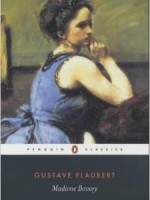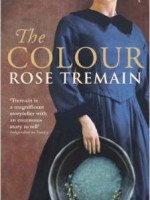(Published by Pocket)
 |
When Françoise Sagan failed to pass her Sorbonne exams in 1953, she decided to write a novel. At just 18 she wrote Bonjour Tristesse and the book is a remarkable achievement, not just due to her youth, but because it’s a total classic.
It follows one heady summer in the south of France where the precocious Cecile is holidaying with her father, a fickle but free-spirited womaniser. In tow for the summer is Elsa, yet another of his conquests, whose comings and goings Cecile has long become used to after the death of her mother. Her initial cynicism about love and relationships is largely based on the ephemeral nature of her father’s trysts. But she loves him in spite of this and they are close enough for Cecile to brush off his philandering with an Oscar Wilde quote about sin. “Sin is the only note of vivid colour that persists in the modern world,” of which she says, “I believed that I could base my life on it”. This line turns out to have far more implications for Cecile’s life than just her own relationships and hints at the dark twist later in the book.
Happily ensconced by the sea with Elsa, Cecile feels something akin to happiness, mainly because Elsa is not that clever and can’t really compete for her father’s affections. One day Anne, an old friend of her mother’s arrives and the power struggles begin; between Cecile and Anne, Anne and Elsa, and even Cecile and Cyril, a local boy who is in love with her. Anne is a confident, intelligent woman and Cecile is both intimidated and entranced. Before long, so is her father. Elsa is ousted and Anne and Cecile’s father decide to get married.
Given his mayfly approach to love, Cecile is in shock and knows that her and her father’s connection will never be the same if Anne is allowed into their nest. Cecile is caught between wanting her father to be happy and not losing her place in his affections. Anne and Cecile are complex characters. Anne is alternately loved and loathed by Cecile whose immaturity is one of the main motivations for their troublesome relationship. One evening as they prepare for a night out, she wants Anne to comment on her dress so badly that when she doesn’t she says she is “relieved, but all the same it was mortifying.” In just a sentence Sagan exquisitely captures what it is to be on the brink of adulthood; Cecile craves attention but her childlike self-consciousness gets in the way. Cecile herself is likeable, boundless – she is cocky, but charming; innocent but aware.
Poised between opposites, the book builds towards Cecile’s efforts to reassert her position in the new nuclear family. Her efforts to turn her father against Anne by using Elsa and Cyril are surprisingly manipulative and this side of Cecile comes as a shock to the reader. Cecile is desperate for Anne to acknowledge the past life she and her father shared before she can become part of their new life. Well aware of her father’s predictability, she misjudges Anne’s sensitivities and the results are tragic.
Cecile is such a believable character – the teenage girl motivated by love and loyalty – but what begins as a summer of exploration is blighted by her jealousy. Caught between being a child and a grown-up, her actions are those of both spoilt child and scorned woman. The language is always sensuous; Sagan teases out the sunny days of a young woman’s self-discovery. The colour and romance, the tastes and smells appeal to the senses and we can all see ourselves in Cecile. Would Sagan have written the character so brilliantly if she hadn’t been so young herself? Who knows, but Cecile is a young woman not quickly forgotten.





Fantastic review!
Comment by Catherine — April 20, 2012 @ 3:03 pm